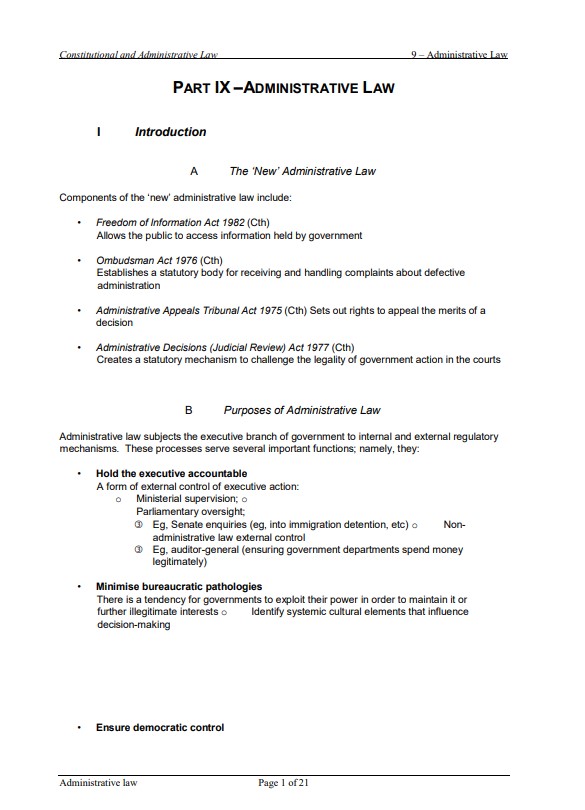Administrative Law (Grade A)
Summary:
This note discusses the ‘new’ administrative law and its purposes, its relationship with the rule of law, and the reasons for its emergence. The new administrative law encompasses various acts that provide mechanisms for public access to information, handling complaints, appeal rights, and challenging government action legality. The purposes of administrative law include holding the executive accountable, minimizing bureaucratic pathologies, ensuring democratic control, improving administration quality, informing the public, legitimizing administrative action, and protecting and promoting human rights. The rule of law, as outlined by A.V. Dicey, significantly influences the development of administrative law. Administrative bodies perform varied functions, making them different from courts. While they are subject to the rule of law, some concerns arise regarding exercising discretion and undisclosed policies. However, administrative law increases oversight and provides additional review processes, enhancing compliance with the content of laws.
Excerpt:
Administrative Law
I. Introduction
A. The ‘New’ Administrative Law
Components of the ‘new’ administrative law include:
- Freedom of Information Act 1982 (Cth) – Allows the public to access information held by the government
- Ombudsman Act 1976 (Cth) – Establishes a statutory body for receiving and handling complaints about defective administration
- Administrative Appeals Tribunal Act 1975 (Cth) – Sets out rights to appeal the merits of a decision
- Administrative Decisions (Judicial Review) Act 1977 – (Cth)Creates a statutory mechanism to challenge the legality of government action in the courts
B. Purposes of Administrative Law
Administrative law subjects the executive branch of government to internal and external regulatory mechanisms. These processes serve several important functions; namely, they:
- Hold the executive accountable
A form of external control of executive action:
o Ministerial supervision;
o Parliamentary oversight;
E.g. Senate enquiries (e.g., into immigration detention, etc.) o Nonadministrative law external control
E.g., auditor-general (ensuring government departments spend money
legitimately) - Minimise bureaucratic pathologies
There is a tendency for governments to exploit their power in order to maintain it or further illegitimate interests. Identify systemic cultural elements that influence decision-making


Reviews